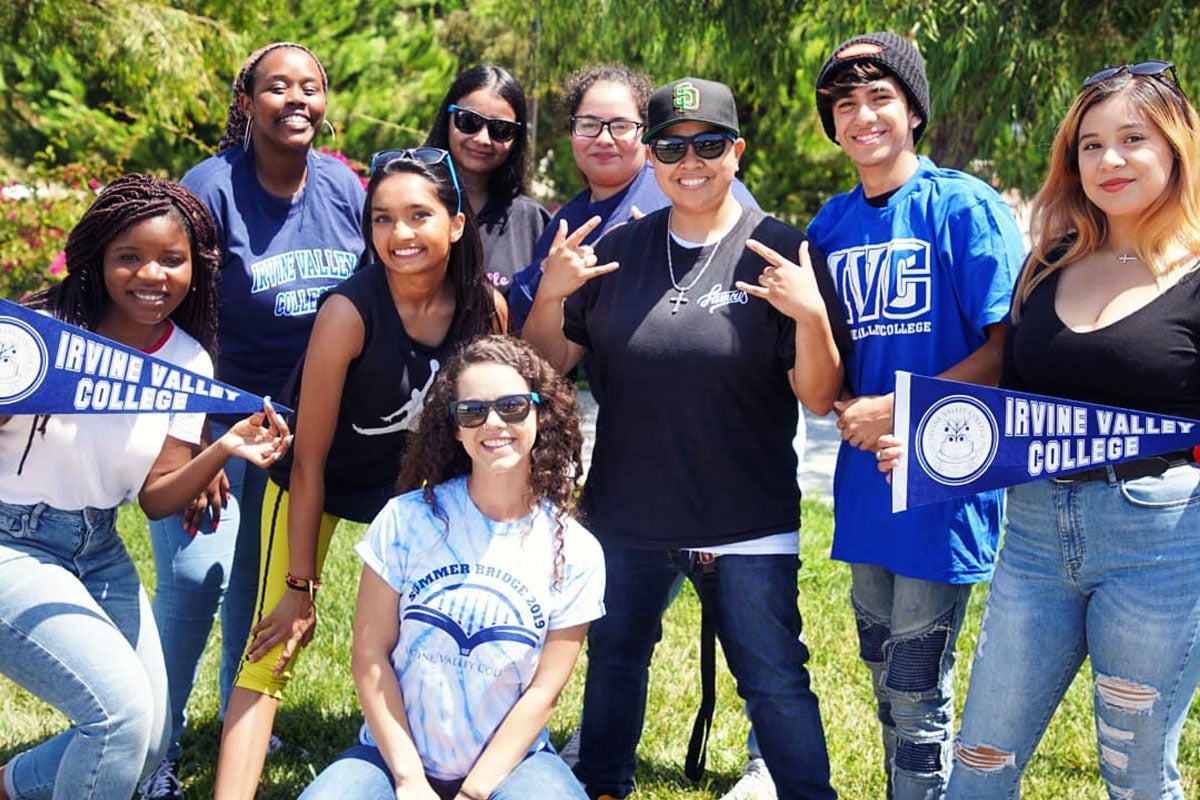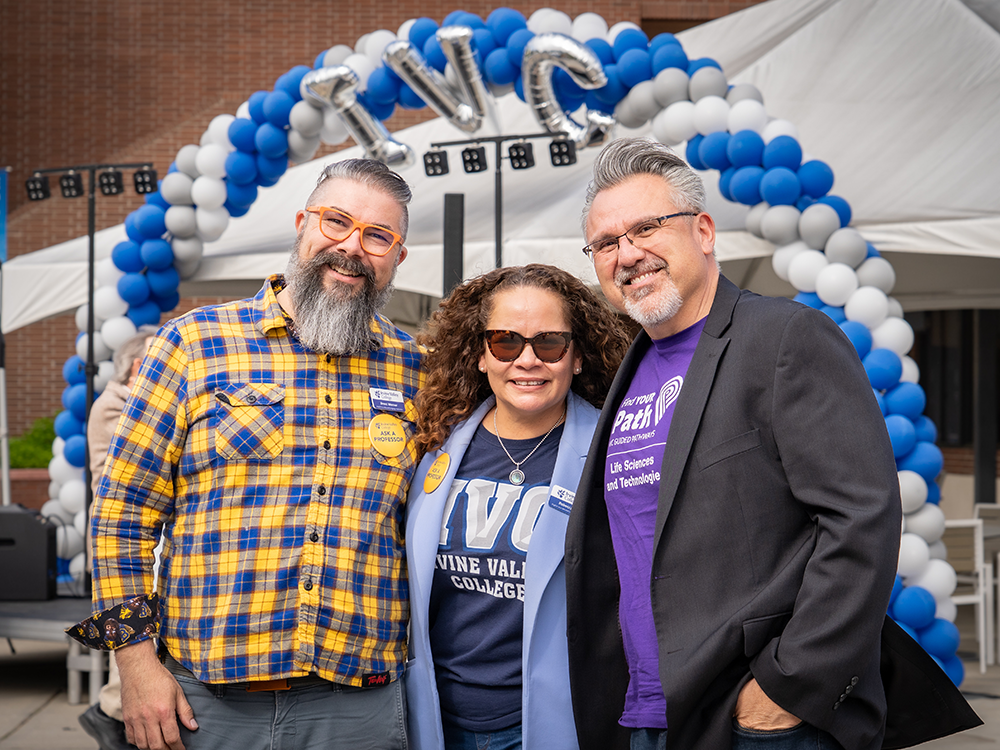Students may also refer to Administrative Regulation 4000.5 for more information regarding filing a complaint and investigation procedures.
The South Orange County Community College District is committed to providing an academic and work environment free of unlawful discrimination and harassment. Federal and state laws and District policies afford students and employees the right to work or learn in an environment free from discriminatory intimidation, ridicule and insult.
The District prohibits illegal harassment including the acts of students, employees, and non-employees.
Prompt and equitable action, including appropriate disciplinary action, will be taken against any student, employee (supervisory or otherwise), or agent of the District, who engages in such conduct. The action will be prompt, effective, and commensurate with the severity of the offense.
General harassment
Discrimination and/or harassment based on race, color, sex, gender, gender identity, gender expression, religion, national origin, ethnic group identification, ancestry, age, physical or mental disability, medical condition, military service, sexual orientation, marital status, pregnancy, or any legally protected characteristic, or the perception that a person has one or more of these characteristics is illegal and violates District policy.
Gender-based harassment does not necessarily involve conduct that is sexual. Any hostile or offensive conduct based on gender can constitute prohibited harassment. Harassment comes in many forms, including but not limited to the following conduct:
- Verbal
Inappropriate or offensive remarks, slurs, jokes or innuendos based on a person’s race, gender, sexual orientation, or other legally protected status.
- Visual or Written
The display or circulation of visual or written material that degrades an individual or group based on gender, race, nationality, sexual orientation, or other legally protected status.
- Environmental
A hostile academic or work environment exists where it is permeated by sexual innuendo; insults or abusive comments directed at an individual or group based on gender, race, nationality, sexual orientation or other legally protected status; or gratuitous comments regarding gender, race, nationality, sexual orientation or other legally protected status that are not relevant to the subject matter of the class or activities on the job.
- Physical
Inappropriate or offensive touching, assault, or physical interference with free movement. This may include, but is not limited to, kissing, patting, lingering or intimate touches, grabbing, pinching, leering, staring, unnecessarily brushing against or blocking another person, whistling or sexual gestures. It also includes any physical assault or intimidation directed at an individual due to that person’s gender, race, national origin, sexual orientation or other protected status. Physical sexual harassment includes acts of sexual violence, such as rape, sexual assault, sexual battery, and sexual coercion. Sexual violence refers to physical sexual acts perpetrated against a person’s will or where a person is incapable of giving consent due to the victim’s use of drugs or alcohol. An individual also may be unable to give consent due to an intellectual or other disability.
Sexual Harassment
In addition to the above, sexual harassment consists of unwelcome sexual advances, requests for sexual favors, and other conduct of a sexual nature when:
- submission to the conduct is made a term or condition of an individual’s employment, academic status, or progress;
- submission to, or rejection of, the conduct by the individual is used as a basis of employment or academic decisions affecting the individual;
- the conduct has the purpose or effect of having a negative impact upon the individual’s work or academic performance, or of creating an intimidating, hostile or offensive work or educational environment; or submission to, or rejection of, the conduct by the individual is used as the basis for any decision affecting the individual regarding benefits and services, honors, programs, or activities available at or through the college.
Complaint Procedures
Informal Procedures
The District strongly encourages students and staff who believe they are being harassed to file a complaint in a timely manner. Since failure to report harassment impedes the District’s ability to stop the behavior, the District strongly encourages that such complaints be made within 30 days of the alleged incident. Any complaint not involving employment may be made orally or in writing within one year of the date of the alleged discrimination or harassment.
The District has established “designated officers” who are charged with receiving complaints and coordinating their investigation. The designated officer will explain the rights and options available to the individual bringing charges of unlawful discrimination or harassment. If there is a simple misunderstanding or the individual does not wish to file a formal complaint, the individual may elect to pursue an informal resolution process. The informal process is not a prerequisite for filing a formal complaint.
An individual who feels she/he has been subjected to sexual assault may file a complaint with the police department in addition to any other complaint.
Individuals who believe they have been subjected to unlawful discrimination, including harassment, may report complaints to the designated officer for Irvine Valley College:
Vice President for Student Services Irvine Valley College
5500 Irvine Center Drive Irvine, California 92618
949-451-5214
Formal Procedures
If an informal process does not resolve the matter and/or the complainant wishes to pursue formal charges, he or she may elect to follow formal complaint procedures. The informal process may not be appropriate for complaints of sexual assault. Formal complaints of unlawful discrimination or harassment must be filed in writing on a form prescribed by the State Chancellor. Approved complaint forms are available from any one of the following sources:
The Office of the Vice President for student services
Irvine Valley College 5500 Irvine Center Drive Irvine, California 92618
949-451-5214
The Office of the Director of Human resources
South Orange County Community College District
28000 Marguerite Parkway Mission Viejo, California 92692 949-582-4348 or 949-582-4850
SOCCCD Website:
Unlawful Discrimination Complaint Form
State Chancellor of the California Community Colleges website:
https://www.cccco.edu/Complaint-Process-Notice
Upon receiving a formal written complaint, the District will determine whether the complaint has met the necessary requirements, which include but are not limited to whether it was filed in a timely manner, on an appropriate form, and whether it alleges unlawful discrimination as stipulated in Title 5, section 59300.
The District will investigate properly filed complaints according to procedures prescribed in Board policy. The District will complete its investigation within 90 days of receiving the complaint and report its administrative determination. The District must provide written notice to both the complainant and the State Chancellor of whether there is probable cause to sustain the charges raised in the complaint; a description of the action taken, if any, to prevent similar problems from occurring in the future; the proposed resolution of the complaint; and the complainant’s right to appeal to the District and the State Chancellor.
Further Information
For more comprehensive information about discrimination and harassment, students are encouraged to read the Harassment Policy and Complaint Procedure brochure, available in the Office of Student Services, Room A 110, at Irvine Valley College.





